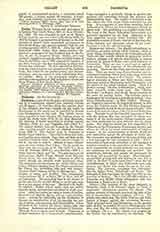

Dailey, WILLIAM BEDE, lawyer and statesman, b. in Sydney, New South Wales, 1831; d. there October 28, 1888. He was educated in part at St. Mary’s College, Sydney, and was called to the Bar in 1856. In 1857 he became a representative of Sydney in the first parliament elected under responsible government in New South Wales; was solicitor-general (1858-9), and attorney-general (1875-7, 1883-5). After the fall of Khartoum (1885) Dailey (then acting-premier) dispatched a contingent of nine hundred men to the Sudan to aid the imperial troops. Dailey, who had declined a knighthood and the office of Chief Justice of New South Wales, was in 1887 appointed a member of the Privy Council—the first Australian on whom that honor was conferred. He was regarded as the foremost lay representative and champion of the Catholic body, was noted for his parliamentary and forensic eloquence, and was endowed with considerable literary ability. Many of his newspaper articles and sketches were reprinted in 1866 in Barton’s “Poets and Prose Writers of New South Wales“.
HENRY W. CLEARY

